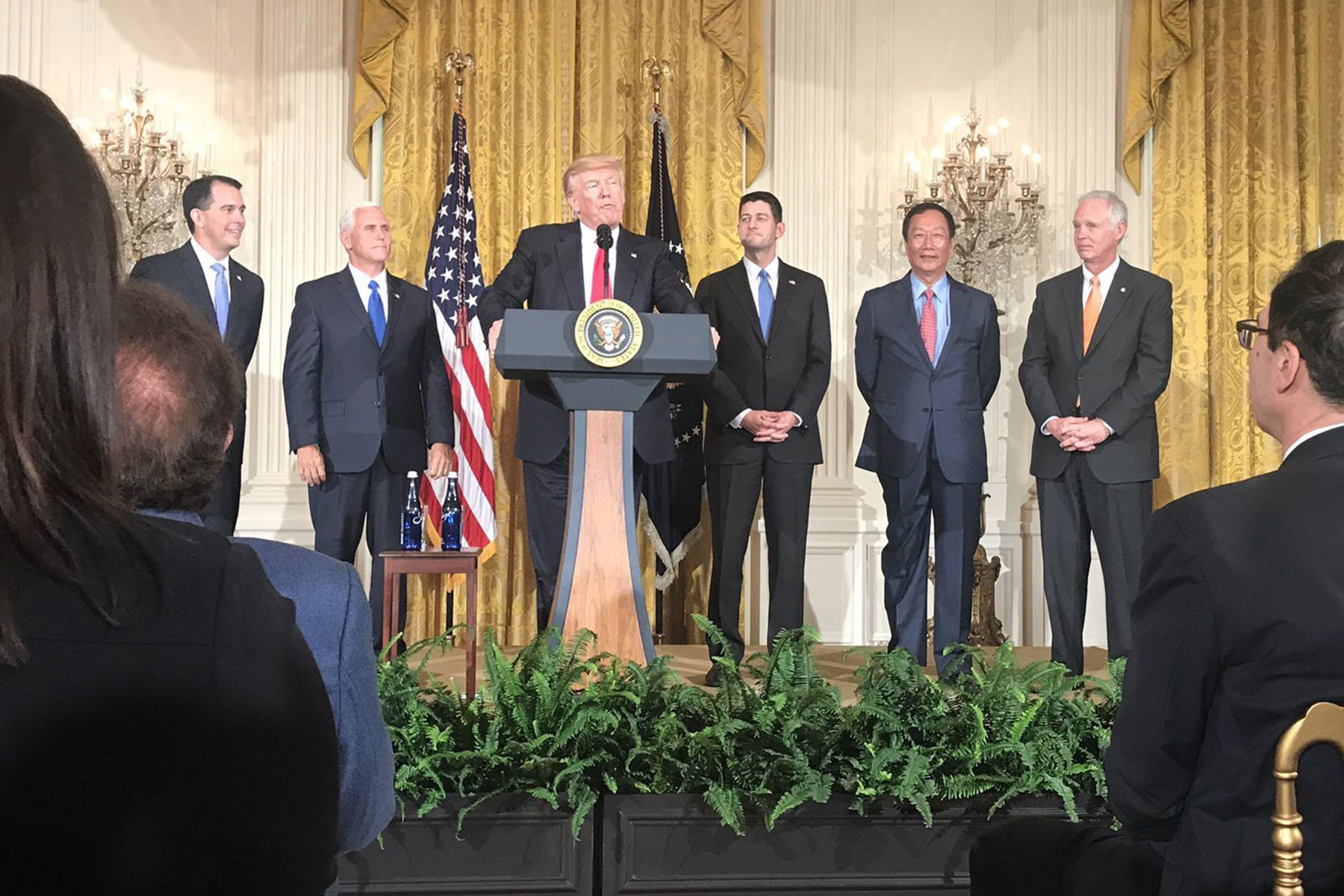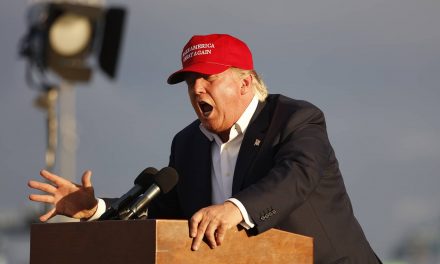
With the support of the Trump Administration, Governor Walker has proposed an unprecedented package of businesses incentives aimed at encouraging Foxconn to build a manufacturing facility in southeast Wisconsin.
The deal could result in the state paying Foxconn nearly $3 billion in state money over the next 15 years, in exchange for Foxconn spending $10 billion to construct a facility in Wisconsin and creating up to 13,000 jobs.
Here are five reasons why the proposed deal is a poor use of public resources:
1. The state would likely pay Foxconn a lavish $200,000 to $600,000 for each new job, depending on how many jobs are ultimately created.
There’s a lot we don’t know about the Foxconn deal, including the number of jobs that would ultimately be created at the new facility. The agreement between Governor Walker’s administration and Foxconn indicates that the company will create “up to” 13,000 jobs — but that leaves open the possibility that the number could be considerably less than that.
Depending on the number of jobs ultimately created and the amount spent on capital investments (including robots), the cost of the subsidies on a per-job basis could range from a low of $219,000 under what appears to be the best-case scenario, to $587,000 per job if Foxconn employment is at the low end of the range discussed by the Governor.
One important thing to note about the Foxconn deal: Even without subsidies, Foxconn would be paying little or nothing in income taxes in Wisconsin. Instead of reducing the amount of income tax that Foxconn owes, the proposed subsidies would take the form of large checks written from the state of Wisconsin to Foxconn every year for the next 10 or 15 years.
For more on the per-job cost of subsidies to Foxconn, read Different Assumptions about Foxconn Job Creation Yield Much Higher Estimates of the Cost of Jobs.
2. Under the deal, it would be at least a quarter-century before the state recouped its investment – and that’s under the best case scenario.
Even under the best case scenario, state taxpayers would have to wait 25 years before the additional tax revenue generated by the Foxconn facility exceeded the amount of public money the state paid to Foxconn in subsidies. That not only assumes that Foxconn will create 13,000 new jobs, and there will be a “multiplier effect of 22,000 more jobs,” but also makes the very unrealistic assumption that every bit of the resulting tax revenue will be reaped by Wisconsin.
Making modest changes in the assumptions about the number of jobs created and where new taxes are collected pushes the payback period to as long as 40 years.
For more on the payback period, go to State’s Breakeven Point on Foxconn Incentives Could be Far Longer than 25 Years, Depending on Assumptions.
3. State taxpayers could be on the hook for more than a billion dollars in unrecoverable subsidies if Foxconn decides to leave once the subsidies end.
When a company’s business plan relies on getting enormous subsidies from the state, how confident can we be that Foxconn will remain in Wisconsin when those subsidies are gone?
If Foxconn decides to pull up stakes once the state stops sending it checks, or if rapidly-evolving technology renders the factory obsolete, Wisconsin taxpayers may never get a chance to recoup their investment. Depending on the assumptions made, state taxpayers would be on the hook for amounts ranging from $2 million to a staggering $1.2 billion.
There is no provision in the proposed agreement that would prevent Foxconn from leaving once the subsidies stop – or from threatening to leave unless Wisconsin negotiates another deal that involves the state paying additional public money to subsidize Foxconn.
For more on what could happen if Foxconn leaves, go to The Significant Risk of not Breaking Even on Foxconn Subsidies.
4. The deal would give Foxconn a pass on important environmental protections.
The proposal exempts Foxconn from adhering to certain rules that protect Wisconsin’s air, water, and land.
An excerpt from this article in the Wisconsin State Journal explains why conservationists are raising the alarm about the fast-tracked legislation:
Walker wants to exempt Foxconn from requirements for an environmental impact statement, a plan demonstrating Foxconn’s water usage would be sustainable and state permits for filling in wetlands, building on lakebeds and diverting streams.
“We are exempting one company from a whole slate of environmental protections without even knowing where the plant is going to be,” said Jennifer Giegerich, a Wisconsin League of Conservation Voters lobbyist.
“They are just handing autonomy to a Chinese corporation that will then have control over water in this state,” said Raj Shukla, executive director of the River Alliance of Wisconsin.
5. High stakes investments in megaprojects are not an effective use of public resources.
Instead of gambling big bucks on a single, huge project that could be rendered obsolete by evolving technology, Wisconsin would get far more bang for its buck investing in its K-12 schools, higher education system, and worker training – investments that are guaranteed to pay off in creating jobs and improving the economy, unlike the Foxconn deal. Most new jobs are created by small employers, and those employers want the state to invest in things with broad benefits, such as education, training, and high speed internet.
There is no way of knowing whether Foxconn will even be around in 25 or 40 years, let alone how many people it will employ. But we do know that investments made in Wisconsin families and communities today will continue to improve the lives of Wisconsin residents for years and decades, making Wisconsin a great place to live, work and do business. Instead of using the $3 billion to boost the bottom line of a private corporation, lawmakers should recognize a true transformational opportunity and use those resources to invest in Wisconsin’s human capital.
Tamarine Cornelius
Originally published on wisconsinbudgetproject.org
Help support the Wisconsin Budget Project with a donation. The organization is engaged in analysis and education on state budget and tax issues, particularly those relating to low-income families. It seeks to broaden the debate on budget and tax policy through public education and by encouraging civic engagement on these issues.














